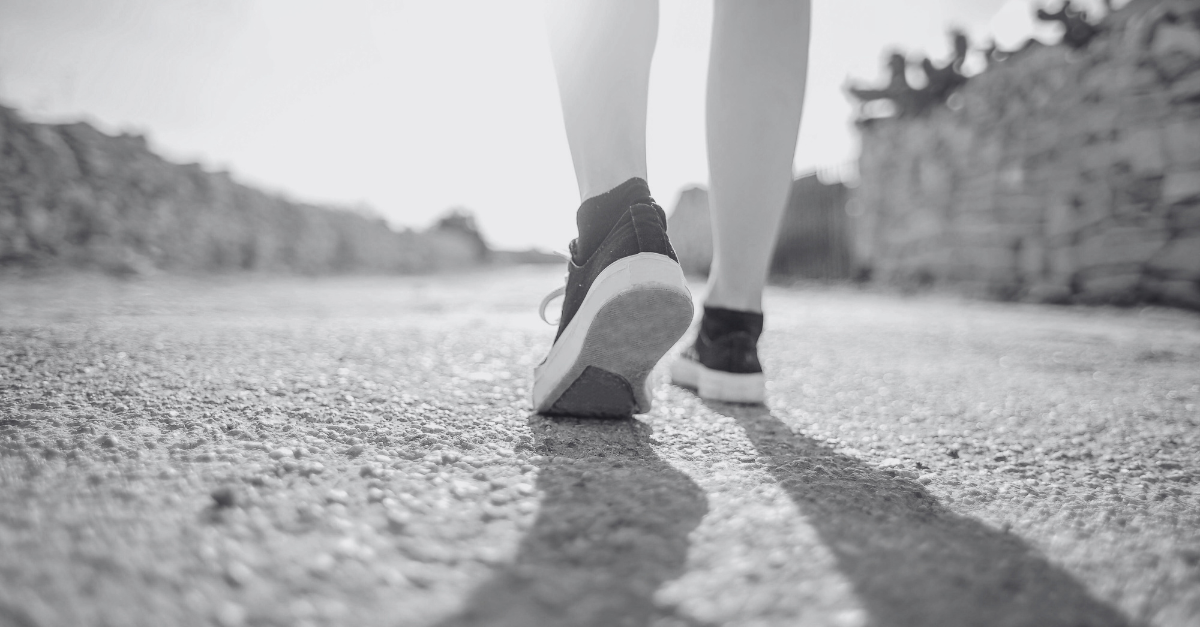If you’re a midlife woman struggling with mood swings, low energy, or a heavy emotional fog, you’re not alone and you’re definitely not weak. The truth is, your body and brain are changing during perimenopause and menopause.
And while antidepressants are often the first line of defense, a growing body of research shows that walking (especially brisk walking) might be just as effective, and often with longer-lasting benefits.
Midlife Mood Struggles: It’s Not “Just in Your Head
Perimenopause can bring on:
- Low mood or irritability
- Anxiety
- Emotional flatness or numbness
- Sleep disruptions
These symptoms are not just psychological. They’re deeply biochemical and hormonal. As estrogen and progesterone shift, your serotonin and dopamine (brain chemicals responsible for joy and calm) also suffer.
While antidepressants target these neurotransmitters, movement, especially walking, naturally boosts them without unwanted side effects.
The Study That Changed Everything: Duke University’s Landmark Research
A pivotal Duke University study compared three groups of adults with major depressive disorder:
- One group took Zoloft (an antidepressant),
- One group did brisk walking 30 minutes a day, three times a week,
- One group did both.
At the end of the 16-week study, all groups showed improvement, but here’s the shocker: At the 10-month follow-up, the walking group had the lowest rate of relapse.
That’s right! Brisk walking alone outperformed medication in sustaining mood improvement.
For women in midlife, this is huge. It means that movement isn’t just a short-term fix, it’s a long-term strategy for mental and emotional resilience.
What’s Really Happening in Your Body When You Walk?
From a quantum biology perspective, movement like walking activates deep healing mechanisms:
✅ Increased BDNF (Brain-Derived Neurotrophic Factor): This boosts brain plasticity and protects against cognitive decline.
✅ Improved mitochondrial function: Your cells make more energy, which improves brain and mood health.
✅ Better cortisol rhythm: Morning walking outdoors helps regulate stress hormones and improves sleep.
✅ Enhanced serotonin and dopamine levels: The same feel-good chemicals that many medications try to replicate.
Nature as a Co-Therapist
Walking outdoors, especially in green spaces, amplifies these benefits.
Research shows that nature walks reduce cortisol levels, decrease rumination (negative overthinking), and even lower inflammation which is a key driver of depression in midlife women.
Pair that with the circadian boost of natural light in the morning, and you have a potent, side-effect-free antidepressant built into your daily life.
Walking vs Antidepressants in Midlife: What’s the Takeaway?
Let’s be honest: too many women are prescribed antidepressants without a full picture of what’s really going on in their bodies. In midlife, mood shifts are often not a mental health disorder. They’re a biological response to hormonal and circadian disruption.
And yet, the go-to fix is often a prescription pad, rather than personalized lifestyle interventions that address the root cause.
Walking offers what antidepressants cannot:
- Natural hormone regulation
- Enhanced brain function and clarity
- Cardiovascular and metabolic support
- Deeper, more restorative sleep
- Nervous system regulation through daily rhythm and light exposure
The Duke University study didn’t just show that walking improves mood. It showed that movement leads to more lasting results, with fewer relapses than medication. That’s because walking aligns with how your biology is meant to function, not override it.
How to Start Your Walking Practice
This isn’t about adding one more “should” to your day. It’s about reconnecting with a rhythm that supports your body, brain, and mood during a time of massive transition.
Here’s how to make it work for your life:
🟣 Start with just 10–15 minutes a day – consistency matters more than duration
🟣 Get outside in natural light especially at sunrise
🟣 Walk at a pace that feels energizing, not punishing
🟣 Leave the headphones behind occasionally and let your nervous system recalibrate to silence and nature
Final Thoughts: Reclaiming Your Power Through Movement
Walking isn’t a trend. It’s a biological reset. A way to honor what your body is going through instead of silencing the symptoms.
You deserve solutions that work with your biology, not against it. So if you’ve been told you need a pill to feel better, ask this first: What would happen if I just walked instead?
Let’s Walk Through This Together
Curious how walking, light, and nervous system support can change the game for your symptoms?
Book a Free Symptom Strategy Session and we’ll create a plan that’s aligned with your hormones, not reliant on prescriptions. You can also visit my resources page for free resources to help you navigate this journey.

View comments
+ Leave a comment